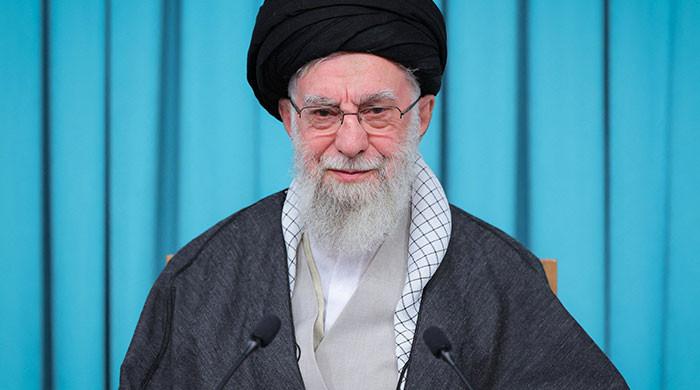United Nations: Iran’s Supreme Leader, Ayatollah Ali Khamenei, has dismissed conversations with Washington, saying that negotiations with the United States do not serve the national interest of the country, since the result has already been predetermined by the United States, the closure of the Iran Nuclear Enrichment Program.
“This is not a negotiation, it is a dictation.”
Supporting his defense of uranium enrichment, the Iranian leader said that enrichment affects several aspects of people’s lives, including agriculture, environment, electrical energy, medicine, industries and other areas.
Expressing his opinion about social networks on Tuesday, he also revealed that Iran has achieved an advanced level in uranium enrichment. He clarified that Iran does not need nuclear arsenal, emphasizing that Iran has enriched the 60%uranium, while countries with the aim of developing nuclear weapons enrich an uranium up to 90%.
In addition, he explained that from ten countries capable of uranium enrichment, only Iran did not have a nuclear bomb and did not intend to do so.
The European powers that seek to reimpose difficult sanctions to Iran about their nuclear program met Tuesday with Tehran’s main diplomat, but there were no signs of commitment.
However, there was an agreement to continue the conversations as the clock operates in the reimposition of deep sanctions to Iran’s economy, even when Iran’s supreme leader resisted the European pressure.
“Iran should never get a nuclear weapon,” said German Foreign Minister Johann Wadephul to journalists before the meeting outside the UN General Assembly in New York.
But he added: “The possibilities of reaching a diplomatic solution before the sanctions enter into force are scarce.”
Khamenei said that the Islamic Republic would not give pressure to abandon its enrichment of uranium.
“We do not give up and we will not. We did not give it to pressure in this matter or in any other matter,” he said.
Iran’s Ministry of Foreign Affairs said that “it was agreed that consultations with all the parties involved would continue.”
Iranian Foreign Minister Abbas Araghchi has until Saturday to reach an agreement with his British, French, German and EU counterpart to avoid the restoration of UN sanctions, which had been suspended by virtue of an agreement signed in 2015.
‘The most dangerous weapon’
Araghchi met in New York with his counterparts from the three European powers, as well as the EU Foreign Policy Chief, Kaja Kallas.
Iran and Europeans blame each other for the failure of diplomatic efforts to reach a new agreement on Tehran’s nuclear program, for a long time a spiteful conflict point between the two parties.
European countries and the United States suspect the Iranian government to seek to acquire an atomic bomb. Tehran has vigorously denied that, insisting that he is entitled to civil nuclear energy.
Israel in June carried out an important military campaign against Iranian nuclear sites, with President Donald Trump joining US combat planes that eliminate bombs on key objectives.
The Trump administration, which for a long time had pressed for the reimposition of sanctions, has expressed the willingness to have conversations with Iran, which doubts the sincerity of Washington.
The general director of the OIEA, Rafael Grossi, said on Monday that the American envoy Steve Witkoff was exploring different ways of communicating with Iran, without specifying more details.
The United States has not commented on any contact with Iran in New York.
But Khamenei said that “one cannot negotiate with such a party. In my opinion, negotiations with the United States on the nuclear issue, and perhaps also on other issues, are a complete dead end.”
Trump, which goes to the UN General Assembly, said that American combat planes managed to “totally erase” Iranian nuclear sites.
“My position is very simple. The world number one sponsor can never be allowed to possess the most dangerous weapon,” Trump said.
The European side has established three conditions to extend the sanction relief period to allow more time for negotiations on a comprehensive treaty.
They include the resumption of direct negotiations without prior conditions, full access for inspectors of the International Atomic Energy Agency (IEA) to Iranian nuclear sites and precise information on the location of enriched materials.
The European side believes that none of the conditions has been met.
Tehran accuses the European powers of exercising political pressure that undermines the negotiations and statements of having produced a “balanced” proposal, whose details have not been revealed.




